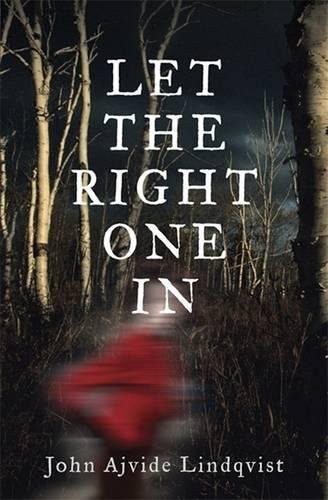radio-appears reviewed Let the Right One in by John Ajvide Lindqvist
Review of 'Let the Right One in' on 'Goodreads'
"Let the Right One In" is essentially a horror book combined with a Scandinavian thriller. And if you've ever read one of those, you know how bleak they can be, with this one no exception. This book is one of the bleakest and, strangely, most realistic vampire stories I've ever come across.
The rules of vampirism that Lindqvist decided on are on the strict side of the spectrum, and he handwaves nothing to make Eli fit better into society, like many other vampire media does in order to tell the story they want to tell. No fake blood substitutes, no constantly cloudy skies, not even the idea of vampires as a different, superior species which is so often used to explain why they're not morally conflicted over drinking blood. In fact, in this story, there are very few vampires because most of them end up killing themselves out of guilt. So, there are no grand vampire parallel societies, and the dietary needs of only one - Eli - turn an entire city up on its head as in a short span of time multiple bodies turn up drained of blood.
Even immortality and superpowers don't really seem to weigh up against the deeply lonely and fearful life this results in for Eli, who is forced to ally herself with a pedophile in order to keep up enough of a facade of normalcy to avoid detection.
It's this bleakness, however, that makes the relationship between Oskar and Eli so touching. They're both lonely, abused, ashamed of their bodies and linked with violence - Eli is violent to survive, Oskar is fascinated by it and fantasizes about killing his bullies. They are outcasts and victims, but not innocent. They both have monstrous elements to them. Yet, despite all the horror that surrounds it, and results from it, the love they have for each other, the acceptance they find with each other, is pure and good. Even if it eventually ends up drawing Oskar into the same lonely life of murder and fugitivism as Eli.


